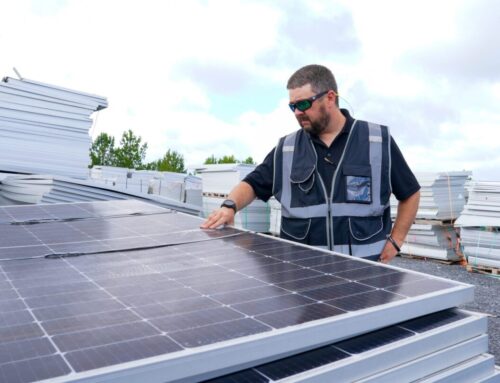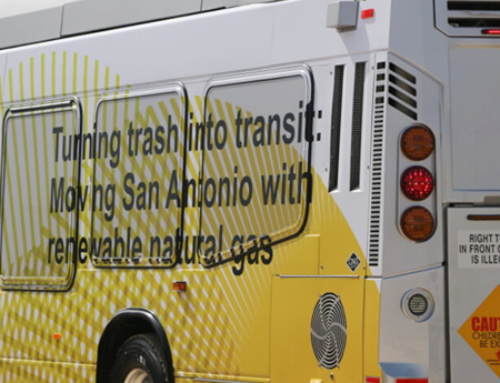Trump’s ‘Big Beautiful Bill’ may end clean energy credits. Critics warn it could send util
July 1, 2025
The sprawling Republican budget bill approved by the Senate Tuesday removes a proposed tax on solar and wind energy projects but quickly phases out tax credits for wind, solar and other renewable energy.
The Senate approved the bill 51-50 as President Donald Trump and GOP lawmakers move to dismantle the 2022 climate law passed by Democrats under former President Joe Biden. Vice President JD Vance broke a tie after three Republican senators voted no.
The bill now moves to the House for final legislative approval.
The excise tax on solar and wind generation projects was added to the Senate bill over the weekend, prompting bipartisan pushback from lawmakers as well as clean energy developers and advocates.
The final bill removes the tax but mostly sticks with legislative language released late Friday night and would end incentives for clean energy sooner than a draft version unveiled two weeks ago.
Democrats and environmental groups said the GOP plan would crush growth in the wind and solar industry and lead to a spike in Americans’ utility bills. The measure jeopardizes hundreds of renewable energy projects slated to boost the nation’s electric grid, they said.
“Despite limited improvements, this legislation undermines the very foundation of America’s manufacturing comeback and global energy leadership,” said Abigail Ross Hopper, president and CEO of the Solar Energy Industries Association. If the bill becomes law, “families will face higher electric bills, factories will shut down, Americans will lose their jobs, and our electric grid will grow weaker,” she said.
The American Petroleum Institute, the top lobbying group for the oil and gas industry, applauded the bill’s passage.
“This historic legislation will help usher in a new era of energy dominance by unlocking opportunities for investment, opening lease sales and expanding access to oil and natural gas development,” said Mike Sommers, the group’s president and CEO.
While Democrats complained that the bill would make it harder to get renewable energy to the electric grid, Republicans said the measure represents historic savings for taxpayers and supports production of traditional energy sources such as oil, natural gas and coal, as well as nuclear power, increasing reliability.
In a compromise approved overnight, the bill allows wind and solar projects that begin construction within a year of the law’s enactment to get a full tax credit without a deadline for when the projects are “placed in service,” or plugged into the grid. Wind and solar projects that begin later must be placed in service by the end of 2027 to get a credit.
The bill retains incentives for technologies such as advanced nuclear, geothermal and hydropower through 2032.
Changes to the renewable energy language — including removal of the excise tax on wind and solar — were negotiated by a group of Republican senators, including Alaska Sen. Lisa Murkowski and Iowa Sens. Joni Ernst and Chuck Grassley. Iowa is a top producer of wind power, while Murkowski is a longtime supporter of renewable energy as crucial for achieving energy independence, particularly for isolated rural communities in Alaska.
Murkowski, who voted in favor of the final bill, called her decision-making process “agonizing.”
“I had to look on balance, because the people in my state are the ones that I put first,” she told reporters after Tuesday’s vote. “We do not have a perfect bill by any stretch of the imagination.”
Rhode Island Sen. Sheldon Whitehouse, the top Democrat on the Senate Environment and Public Works Committee, called the bill a “massively destructive piece of legislation” that “increases costs for everyone by walloping the health care system, making families go hungry and sending utility bills through the roof.”
The bill “saddles our children and grandchildren with trillions and trillions of dollars in debt — all to serve giant corporations, fossil fuel polluters and billionaire Republican megadonors who are already among the richest people on the planet,” Whitehouse said.
Wyoming Sen. John Barrasso, a Republican and former chairman of the Senate Energy panel, hailed the bill for rescinding many elements of what he called the Biden administration’s “green new scam,” including electric vehicle tax credits that have allowed car owners to lower the purchase price of EVs by $7,500. The bill also blocks a first-ever fee on excess methane emissions from oil and gas production that industry groups fiercely opposed, increases oil and gas leases on public lands and revives coal leasing in Wyoming and other states.
“Today, the Senate moved President Trump’s agenda forward,” said West Virginia Sen. Shelley Moore Capito, a Republican who chairs the Senate environment committee.
Clean energy advocates were deeply disappointed by the bill, which they argue undoes much of the 2022 climate law approved by Democrats.
“By eliminating a number of clean energy incentives and slashing others, this bill represents a significant step backward for America’s energy future,” said Nathaniel Keohane, president of the Center for Climate and Energy Solutions, a nonprofit that seeks to accelerate the global transition to net-zero greenhouse gas emissions.
“Curtailing incentives for electricity generated from wind and solar power is particularly shortsighted” and will raise energy prices for households and businesses and threaten reliability of the electric grid, Keohane said.
Introducing the 2025 Fortune 500, the definitive ranking of the biggest companies in America. Explore this year’s list.
Search
RECENT PRESS RELEASES
Related Post



